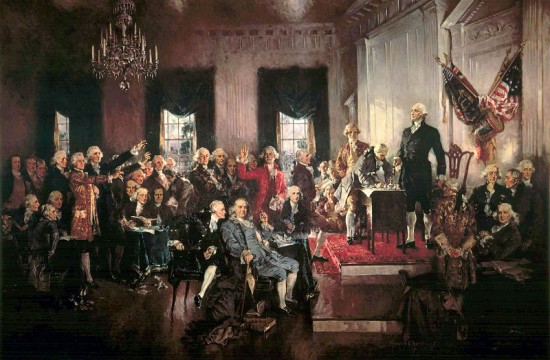The Declaration of Independence will always stand as the most important document in pursuit of freedom. This document stands as the hallmark of a people’s struggle to assert and win their independence against tyranny and unlawful acts. Historical experts continue to study the wording, structure and history of this document even today. While every American should be familiar with the contents of this most important document, many are not. Here is a brief outline of its many important points or The Declaration of Independence at a glance-
1. The opening paragraph explains why the document is written. It asserts the need that the colonies have to dissolve their bonds with Great Britain and assume the rights and privileges that they feel entitled to. The writers of the document make it clear they feel that these rights are both inherent in nature and given from God. The document then goes on to state that they will give the reasons for this needed separation.
2. This second is the largest paragraph in The Declaration of Independence. This paragraph gives the basis of the Declaration. The signers state first that they hold as their most important truth that all men are created equal (though this did not include black men or women). They also state that the rights they hold as most important they feel come from the Creator and include that well-known phrase-“Life, Liberty, and the pursuit of Happiness”?. They then state that because of these rights should any people find themselves subject to an unjust form of government than it is there right to alter or abolish it and “to institute new Government”?. Their objective becomes plain when they clearly state that “the history of the present King of Great Britain is a history of repeated injuries and usurpations, all having in direct object the establishment of an absolute Tyranny over these States”?. They then list the offenses and crimes that they feel they have suffered.
3. The body of the Declaration of Independence then lists the following reasons the Colonies are severing ties with Great Britain-
• Refusal to assent to laws for the common good.
• Forbidding the passing of laws of importance and neglect of recorded laws
• Refusal to pass laws for the accommodation of large groups of people unless they relinquish the right of representation in the legislature.
• Calling together legislative bodies at places that were deemed unusual, uncomfortable, and at a far distance from the depository of their public records. This was done for the purpose of exhausting legislatures into compliance with the king’s wants.
• Dissolving Representative Houses when they did not agree with the king.
• Refusal to reestablish legislative bodies after dissolving.
• Refusal to aid in settling other lands and easing immigration requirements.
• Refusal to support local judiciary powers.
• Setting up judges that only support the king’s wishes
• Allowing soldiers of Great Britain to be able to commandeer home and food from American citizens at will.
• Keeping military stationed in the colonies at all times.
• For allowing trials and laws to be in effect in England that directly affected the American people.
• For allowing soldiers free reign to act at will with no threat of punishment.
• For cutting off trade with all parts of the world.
• Taxation without representation.
• Depriving Americans many times of having a trial with a jury.
• For bringing Americans back to England for trial many times without cause.
• For allowing plunder on both sea and land.
• For taking captive many of the American people and forcing them to serve as captives in the Royal Navy.
• Exciting domestic insurrections among Americans and Native American Indians.
• For not allowing redress of wrongs despite repeated petitions.
4. This paragraph serves as a warning to Great Britain that this document must be taken seriously and that the people of the colonies now regard them as enemies.
5. This paragraph is simply a concluding declaration that this document will serve as a record of wrongs and the desire of the people to completely separate from Great Britain. It also expresses the hope that one day reconciliation will become possible.
6. The signers are listed.

